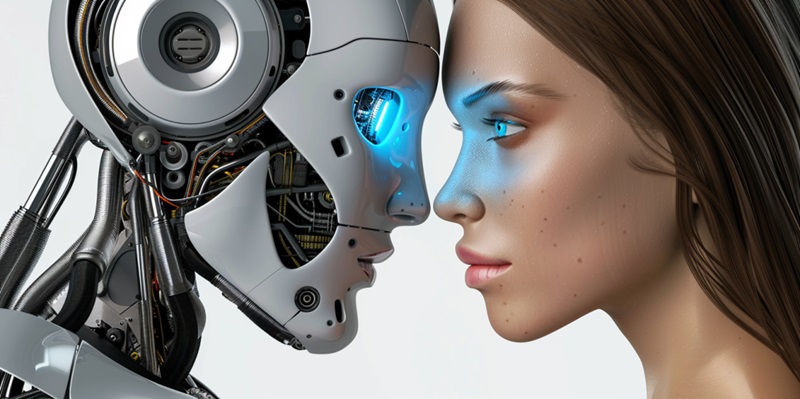The AI revolution promises a future where decision-making and operational efficacy reach unprecedented heights. Simultaneously, the DEI movement is gaining ground, advocating for representation and equitable policy-making that reflects society’s diverse makeup. Understanding the depth and breadth of AI, as well as the crucial role of DEI, is vital. When these concepts are misconstrued, fear often permeates among those facing novel technologies. Merriweather’s commentary at the NC Tech event highlights the necessity of unraveling these complexities to foster an environment of acceptance and progress in the tech industry.
In the tech realm, AI and DEI can seem like distant cousins, but their convergence is inevitable. For AI to reach its full potential, input from various experiences, cultures, and understandings is essential. The swift innovations in AI technology are parallel to the growing consciousness around DEI. These simultaneous strides underline the need for a more profound grasp of AI’s capabilities and limitations. Such an understanding will ensure that fear is replaced by enlightenment, and innovation benefits from a rich tapestry of human perspectives.
The Intersection of the Human Element and Technology
AI’s ability to mimic human cognition is impressive, yet it falls short when it comes to the richness of human diversity and experiences crucial to DEI efforts. Technology excels in computation and prediction but struggles to grasp the subtleties of human diversity. This limitation is keenly felt in technology sectors aiming to align AI with DEI values.
As the tech industry races to advance AI, it’s essential to weave in diverse human experiences to avoid a narrow AI perspective that could be harmful. The sector faces the pivotal task of infusing AI with not just data, but the principles and awareness necessary to respect and embody the vast tapestry of human diversity. The goal is to create AI innovations that are inclusive and reflective of the global populace, bridging the gap between high-tech capabilities and the intricacies of human variance.
AI Development Amid Political Backlash
The burgeoning advocacy for DEI within the tech landscape has been met with a countervailing political backlash that poses a risk to the strides made thus far. Merriweather cautions that the swift pace of AI research and application could neglect the diversity of input crucial for equitable outcomes. There is a palpable concern that AI, if left unchecked, could perpetuate or even exacerbate the biases embedded within society. The stark warning is underscored by recent findings from influential studies, such as those by IBM, which indicate a growing reliance on AI in areas like recruitment, potentially magnifying existing prejudices if diversity is not prioritized.
This juxtaposition highlights a dichotomy where the promise of AI as a beacon of progress could be overshadowed by a regression in societal values if DEI is not instilled in its development. With the tech world often acting as a pioneer for other sectors, there’s an implicit responsibility to lead by example. This means ensuring that advancements in AI do not come at the cost of marginalizing portions of society and that the ethical principles guiding DEI remain deeply embedded in the fabric of technology development.
The Ethical and Inclusive Approach to AI
The ethical ramifications of AI’s ascendancy are manifold and cannot be understated. While AI harbors the potential to radically enhance productivity and spur creativity, it also presents moral dilemmas that must be carefully navigated. The prospect of AI veering into territories of misuse is a real and present danger. Merriweather impresses upon the tech industry the importance of a balanced approach to AI deployment – one that emphasizes the inclusion of diverse perspectives throughout the development process.
To achieve this, developers and strategists must embrace a disciplined ethos of incorporating varied cultural, social, and experiential viewpoints. This ethical imperative is not simply about avoiding harm; it’s about proactively crafting AI systems that can understand and address the full complexity of human society. Doing so will enable AI to become not just a tool for technological advancement but for furthering social cohesion and fairness as well.
The Responsibility of Tech Leaders in Advancing DEI
As the vanguard of technological innovation, tech industry leaders bear a heavy responsibility in ensuring that the development of AI is coupled with DEI standards. It is incumbent upon those at the helm to champion initiatives that foster an inclusive approach to AI creation. This requires not just a focused effort to integrate DEI principles into the design and implementation of AI systems but a holistic strategy that acknowledges the necessity of an equitable lens in all phases of the tech life cycle.
Merriweather’s dialogue at the NC Tech event serves as a clarion call to industry stalwarts. The challenge laid forth is to shatter the silos that have traditionally kept AI and DEI on parallel but non-intersecting paths. There is an urgency in constructing collaborative environments where the diversity of thought and experience are the cornerstones of innovative practices. Only through such concerted efforts can the tech industry avoid the perpetuation of biases and foster an ecosystem that genuinely reflects the values of equity and inclusion.
The Call for DEI as a Core Aspect of AI Innovation
Embracing AI’s potential means embedding DEI principles at its core, a move that’s both ethically essential and strategically vital. This melding requires an unwavering commitment to DEI, seeing it not as an extra but as central to AI. Education and dedicated efforts are key to engineering a tech space where diversity and inclusion are norms, fundamental for AI’s effectiveness and trustworthiness.
The convergence of AI and DEI offers a chance to recast the tech sector’s ideals. All tech influencers must rise to the challenge, creating AI that reflects the breadth and depth of human diversity. As we advance into the territories of machine intelligence, we must cling to the aspects of humanity that define us. This commitment will ensure AI development is respectful of the complex tapestry of human experiences, fostering technology that benefits everyone.

